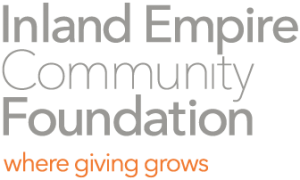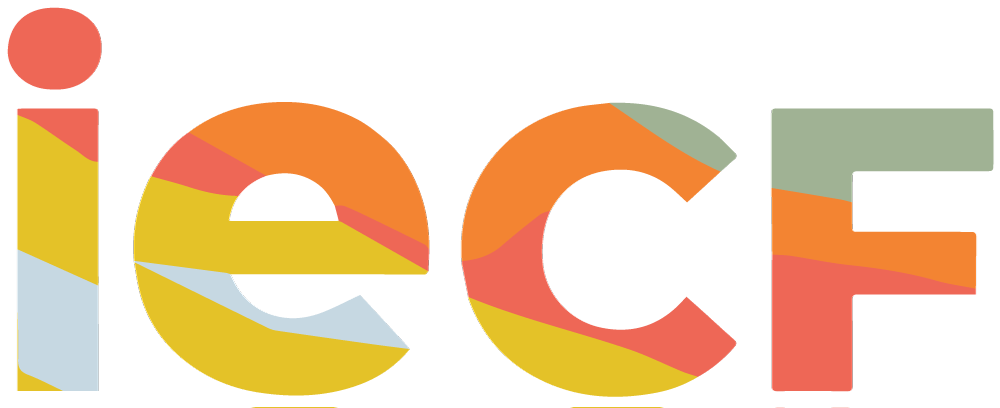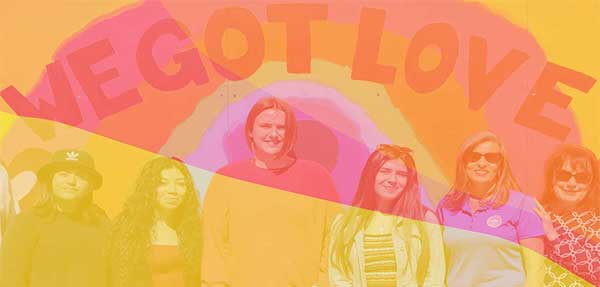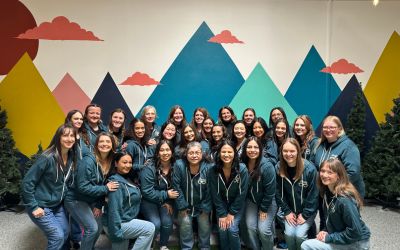 When a nonprofit team comprised of dedicated physical, occupational, and speech therapists hones its collective skills, the results can be life-changing.
When a nonprofit team comprised of dedicated physical, occupational, and speech therapists hones its collective skills, the results can be life-changing.
That’s how things regularly unfold at WonderLab, an innovative Inland Empire nonprofit organization, which recently received a grant via the Fred Stebler and Eva V. Stebler Foundation Fund through Inland Empire Community Foundation.
The grant will be used to assist in several endeavors related to providing Augmentative and Alternative Communication (AAC) devices.
“As a nonprofit provider of therapy services for children, we see kids from 0 to 18, primarily serving children with disabilities and delays,” said Rhonda Nelson, Co-Founder and CEO of WonderLab. “We believe all children should have access to therapy that’s beneficial.”
Providing services to underserved kids is key for WonderLab. Its tagline—“a catalyst for development through science and play”—attests to that. With its core group of seasoned therapists, the organization strives for timely access to pediatric therapy services.
Nelson stresses that early therapy intervention has an immediate impact, if not a lifelong effect on how a child speaks, thinks, learns, and moves. She also points out that the organization wants to provide therapy services to families of all income levels, regardless of their insurance coverage, which often shifts.
“The recent grant will be beneficial because we’ve found that children across the board are underfunded or not funded for alternative communication devices,” Nelson noted. “They often need support when they’re first learning how to talk when they’re neurodivergent or are developing differently.”
This includes kids who are on the autism spectrum, she added, or who have a diagnosis such as Down syndrome. 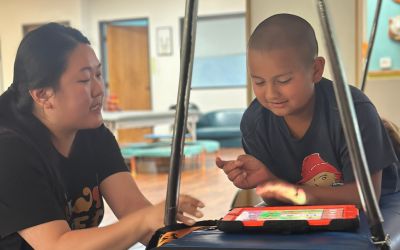
“The technology to help is incredible,” Nelson stressed. “Our goal is to provide more support for kids to use technology as their voice, either while they’re trying to learn how to use their voice, or if they’re a child who will never be able to communicate verbally. This can be an alternative to verbal communication for them.”
The AAC devices are typically provided in school settings, but oftentimes, children aren’t allowed to take their devices home.
“So, effectively, their voice stays at school, or even if they’re allowed to bring it home, parents aren’t provided with the full support that they need to know how to use that device in the community,” Nelson said. “We hope to be one of the very first places in the community that provides really comprehensive support to parents and children to start this program.”
But will insurance pay for the devices? Only the right kind.
“There are lots of insurances that just don’t pay for the device,” Nelson said. “That’s why we’re using these grant funds to also create an AAC library of devices. Our ultimate goal is to have these devices and lend them to families, but also provide therapeutic support so they have a comprehensive model. That way, they can go out into the community and use these devices.”
Nelson, a physical therapist and board-certified pediatric clinical specialist emeritus, brought WonderLab to life in 2016.
“I’ve been here full-time ever since,” she added. “My favorite part about working in collaboration here is that we can get firsthand information about the needs in our community. Because we are on the smaller side, we’re very agile and we can be really creative in helping solve problems we can solve.”
Learn more at thewonderlab.org.
This story originally appeared in the Press Enterprise, October 2025.
Stay up to date on all the good work we’re doing through the power of philanthropy. Sign up for our eNewsletter, Philanthropy Matters, today.
